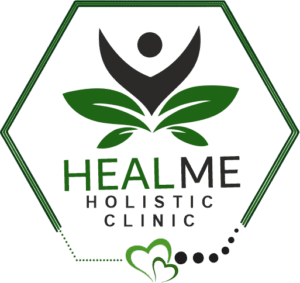Kidney Stone

Usually, your kidneys remove waste from your blood to make urine. When there is too much waste in your blood and your body is not producing enough urine, crystals begin to form in your kidneys. These crystals attract other wastes and chemicals to form a solid object (a kidney stone) that will get larger unless it is passed out of your body in your urine.
Kidney stones can be as small as a grain of sand or as large as a golf ball.
Factors that Increase Your Risk of Kidney Stones
Several factors may increase your risk for getting kidney stones.
1.Lack of water
You need to make enough pee to dilute the things that can turn into stones. If you don’t drink enough or sweat too much, your pee may look dark. It should be pale yellow or clear. drink a glass of a citrus drink. The citrate in lemonade or orange juice can block stones from forming.
2.Diet
The most common type of kidney stone happens when calcium and oxalate stick together when your kidneys make urine. Oxalate is a chemical that is found in many healthy foods and vegetables Examples include:
- Spinach
- Rhubarb
- Grits
- Bran cereal
3.Sodium. You mainly get this through table salt. It can raise your chances of getting several types of kidney stones. So try to avoid salty snacks, canned foods and other processed foods.
4.Animal protein. Animal protein raises your urine’s calcium level and lowers the amount of citrate, both of which encourage stones.
5.Gut problems
Stones are the most common kidney problem in people with inflammatory bowel disease like Crohn’s disease and ulcerative colitis. Bowel problems can give you diarrhea, so you make less pee. Your body may absorb extra oxalate from the intestine, so more gets in your urine.
6. Obesity
You’re almost twice as likely to get a kidney stone if you’re obese. That’s when your body mass index is 30 or above. If you’re 5-foot-10, obesity starts at 210 pounds.
Weight loss surgery can help you shed pounds and improve your health. But studies suggest that people who have the most common weight loss operation, the Roux-en-Y gastric bypass, are at a higher risk of stones. Not every weight loss surgery carries this risk, only the ones that cause malabsorption.
What are the symptoms of kidney stones?
If you have a very small kidney stone that moves easily through your urinary tract, you may not have any symptoms, and may never know that you had a kidney stone.
If you have a larger kidney stone, you may notice any of the following symptoms:
- Pain while urinating
- Blood in your urine
- Sharp pain in your back or lower abdomen
- Nausea and vomiting
What are the causes and risk factors of kidney stones?
Anyone can get a kidney stone, but some people are more likely than others to have them. Men get kidney stones more often than women do. Kidney stones are also more common in non-Hispanic white people than in people of other ethnicities. You may also be more likely to have kidney stones if:
- You have had kidney stones before.
- Someone in your family has had kidney stones.
- You don’t drink enough water.
- You follow a diet high in protein, sodium and/or sugar.
- You are overweight or obese.
- You have had gastric bypass surgery or another intestinal surgery.
- You have polycystic kidney disease or another cystic kidney disease.
- You have a certain condition that causes your urine to contain high levels of cystine, oxalate, uric acid or calcium.
- You have a condition that causes swelling or irritation in your bowel or your joints.
- You take certain medicines, such as diuretics (water pills) or calcium-based antacids.
How can I prevent kidney stones?
The best way to prevent most kidney stones is to drink enough fluids every day. Most people should drink eight to 12 cups of fluid per day. If you have kidney disease and need to limit fluids, ask your doctor how much fluid you should have each day. Limiting sodium and animal protein (meat, eggs) in your diet may also help to prevent kidney stones. If your doctor can find out what your kidney stone is made of, he or she may be able to give you specific diet recommendations to help prevent future kidney stones.
If you have a health condition that makes you more likely to have kidney stones, your doctor might tell you to take medicine to treat this condition.
Home remedies
Accordion Content
Why you need to consult to a doctor?
Accordion Content









